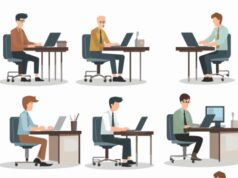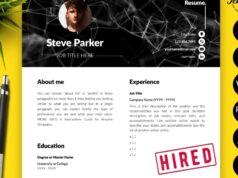In the world that requires academics, time is just as the most valuable resource for students, professors and researchers. Between lectures, research and writing, academic professionals are often overwhelmed by the complete amount of information that they need to process and document. Academic copy typing appears to be an important solution for this challenge, and offers special transcription services that fit the environment of scholars.
Understanding Academic Copy Typing Services
Academic copy typing includes professional transcription of various educational materials – including handwritten notes, recorded lectures, interviews, focus groups and research data – polished, formatted documents. Unlike normal transcription, academic copy -type requires knowledge of disciplinary vocabulary, citation format and educational conferences.
As educational institutions rapidly embrace digital changes, the demand for the quality of academic transcription services increases rapidly. This broad guide revolutionizes academic copy typing, its benefits, applications, best practices and productivity by scholars in 2025.
The Growing Importance of Academic Copy Typing in Modern Education
The academic landscape has evolved dramatically over the past decade. With the increase in distance education, interdisciplinary research collaboration and digital scholarship, the need for efficient information processing has never been more important. Educational copy services have become an essential resource for many in the community of scholars with a luxury.
Several factors drive this growing importance:
- Digital-First Education: Modern educational approaches prioritize digital content creation and accessibility, requiring rapid conversion of physical materials to digital formats.
- Research Volume: The exponential growth in research publications demands efficient methods for processing and synthesizing information.
- Accessibility Requirements: Educational institutions must provide accessible content for students with diverse learning needs, often necessitating professional transcription services.
- Time Optimization: Academic professionals increasingly recognize transcription as a productivity tool that allows them to focus on analysis rather than documentation.
As academic workloads intensify, professional copy typing services provide the infrastructure necessary for scholars to maximize their intellectual output while minimizing administrative burdens.
Key Applications of Academic Copy Typing Services
Academic copy typing services extend far beyond simple note transcription. Today’s providers offer comprehensive solutions for diverse scholarly needs:
Research Interview Transcription
Qualitative researchers rely heavily on interviews for data collection. Professional transcription of these interviews ensures accuracy while preserving important contextual cues, verbal emphasis, and participant nuances. According to a study by the National Center for Research Methods, accurate transcription can significantly improve the validity of qualitative research findings.
Lecture Transcription and Note-Taking
Many students record lectures to ensure they don’t miss critical information. Academic copy typing services transform these recordings into structured, searchable documents—complete with appropriate headings, bullet points, and formatting. This conversion makes revision more efficient and helps students with accessibility needs.
Dissertation and Thesis Support
The dissertation process involves extensive data collection and documentation. Professional academic typists help graduate students by transcribing research interviews, focus groups, and field notes—allowing them to concentrate on analysis and writing. The specialized knowledge these services offer is particularly valuable for handling discipline-specific terminology and citation formats.
Conference and Seminar Documentation
Academic conferences generate valuable content that often goes undocumented. Copy typing services can transform recorded conference presentations, panel discussions, and Q&A sessions into accessible resources for wider dissemination.
Manuscript Preparation and Editing
Researchers sometimes draft documents by hand or dictate their thoughts. Academic copy typists can convert these drafts into formatted manuscripts ready for submission to journals or publishers, ensuring adherence to specific style guides and formatting requirements.
The Tangible Benefits of Professional Academic Transcription
Investing in professional academic copy typing yields substantial returns for scholars at all levels:
Enhanced Research Efficiency
Professional transcription services free up valuable time for researchers to focus on analysis and interpretation rather than administrative tasks.
Improved Accuracy and Quality
Academic transcription specialists understand disciplinary conventions and terminology, ensuring higher accuracy than general transcription services. This expertise is particularly valuable for technical subjects with specialized vocabulary.
Better Accessibility and Inclusivity
Professional transcription supports diverse learning needs by making audio content accessible to students with hearing impairments or learning disabilities. It also benefits non-native speakers who may struggle with rapid speech or unfamiliar accents.
Searchable Digital Archives
Digitizing handwritten notes and recorded lectures creates searchable resources that improve knowledge retrieval and synthesis. This searchability transforms static information into dynamic, reusable content.
Enhanced Collaboration Opportunities
Properly transcribed research materials facilitate collaboration among researchers, especially in multidisciplinary projects where shared understanding is critical.
Choosing the Right Academic Copy Typing Service
Not all transcription services are created equal, particularly for academic purposes. When selecting a provider, consider these essential factors:
Subject Matter Expertise
The best academic transcriptionists have backgrounds in relevant disciplines, ensuring they understand specialized terminology and concepts. According to the Journal of Academic Support Services, transcriptionists with subject knowledge achieve 25% higher accuracy rates for technical content.
Academic Style Guide Familiarity
Academic writing follows specific conventions (APA, MLA, Chicago, etc.). Quality providers ensure transcripts adhere to the appropriate style guide for your discipline or institution.
Security and Confidentiality
Research often contains sensitive information. Reputable services implement robust data protection measures and clearly outline their confidentiality policies.
Turnaround Time and Scalability
Academic deadlines are often tight. Evaluate providers based on their ability to deliver quality transcripts within your timeframe, even for larger projects.
Quality Assurance Processes
Leading services employ multi-tiered review processes, including specialist proofreading, to ensure transcripts meet academic standards.
Best Practices for Working with Academic Transcription Services
To maximize the benefits of academic copy typing services, follow these industry-recommended practices:
Provide Clear Audio Recordings
Quality transcription begins with clear audio. Invest in a good recording device, minimize background noise, and ensure speakers identify themselves in group discussions.
Supply Reference Materials
Sharing relevant materials—like syllabi, reading lists, or glossaries—helps transcriptionists accurately capture specialized terminology.
Communicate Special Requirements
Clearly specify formatting needs, citation styles, and any unique requirements for your transcript to avoid revisions.
Plan for Adequate Turnaround Time
Allow sufficient time for transcription, especially for technical content that may require specialized knowledge or additional research.
Establish a Feedback Loop
Provide constructive feedback on initial transcripts to help the service better understand your specific needs for future projects.
The Future of Academic Copy Typing: Emerging Trends
The academic transcription landscape continues to evolve with technological advancements and changing educational needs:
AI-Enhanced Human Transcription
While purely automated transcription remains insufficient for academic purposes, AI-assisted human transcription is emerging as a powerful hybrid approach. This model combines machine speed with human accuracy and contextual understanding.
Real-Time Collaborative Transcription
Newer platforms allow multiple transcriptionists to work simultaneously on longer recordings, dramatically reducing turnaround times for time-sensitive academic projects.
Interactive Transcripts
Advanced providers now offer interactive transcripts with embedded timestamps, allowing users to click on text to hear the corresponding audio—particularly valuable for language research or qualitative analysis.
Integrated Knowledge Management
The future of academic transcription lies in seamless integration with knowledge management systems, creating intelligent academic ecosystems where transcribed content connects dynamically with other research materials.
Maximizing Academic Potential Through Professional Transcription
In today’s knowledge -intensive academic environment, professional copy services represent a strategic investment instead of just one facility. By converting raw information to available, formatted documents, these services enable their most important skills to focus on their most important skills- analysis and knowledge building.
Since educational institutions continue to embrace digital changes, academic copity research will play a quick central role in supporting research productivity, inclusive education and knowledge dissemination. Whether you are dealing with a doctoral student a dissertation, a professor manages several research projects, or an administrator who supports institutional knowledge management, quality transcript services can significantly increase your educational results.
When you understand the applications, benefits and best practices mentioned in this guide, you can make informed decisions on the inclusion of educational copying of your learned workflow – which forward both individual and institutional success in the competing world of academics.
Additional Resources
- American Psychological Association Guide to Transcription in Research
- Transcription Best Practices for Academic Research by SAGE Methods
- Digital Accessibility Standards for Academic Content










